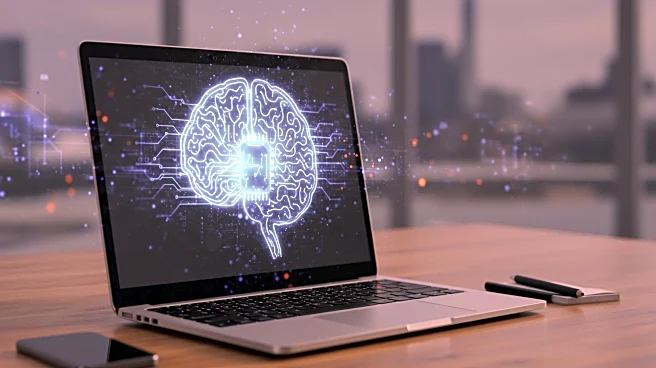What is the story about?
What's Happening?
Recent computer science graduates are facing significant challenges in securing their first jobs, as the tech industry increasingly adopts AI tools for coding tasks. According to a report by the UK's National Foundation for Education Research, there has been a 50% decline in tech job advertisements between 2019/20 and 2024/25, with entry-level roles being particularly affected. The anticipated impact of artificial intelligence is cited as a major factor in this decline. Many companies are using AI to automate simpler coding tasks, traditionally performed by junior developers, which has reduced the number of available positions for newcomers. Despite the widespread use of AI tools, a survey by Stack Overflow reveals that only a third of developers trust the output of these tools, even though nearly half use them daily. This situation has created a challenging environment for new graduates, who are finding it difficult to gain the necessary experience to advance in their careers.
Why It's Important?
The reliance on AI tools in the tech industry has significant implications for the future workforce. As companies automate more tasks, the demand for entry-level positions decreases, potentially leading to a shortage of experienced developers in the future. This could disrupt the traditional career progression in the tech industry, where junior developers gain experience and eventually move into senior roles. The current trend may also discourage students from pursuing computer science degrees, fearing limited job prospects. Additionally, the use of AI in the hiring process, such as automated application screenings, can create barriers for candidates, as they may not receive the personal interaction needed to showcase their skills effectively. This shift in hiring practices could lead to a less diverse workforce, as AI systems may inadvertently favor certain profiles over others.
What's Next?
If the trend of using AI tools continues, companies may need to reconsider their hiring practices to ensure a steady pipeline of skilled developers. This could involve creating more opportunities for internships and apprenticeships, allowing new graduates to gain practical experience. Additionally, educational institutions might need to adapt their curricula to better prepare students for a job market increasingly influenced by AI. Industry leaders may also need to address the trust issues surrounding AI tools, ensuring that they complement rather than replace human developers. As the tech industry evolves, stakeholders will need to balance the benefits of AI with the need to maintain a robust and experienced workforce.
Beyond the Headlines
The ethical implications of AI in hiring and job automation are significant. There is a risk that AI systems could perpetuate biases present in their training data, leading to unfair hiring practices. Companies must ensure that their AI tools are transparent and accountable, providing equal opportunities for all candidates. Furthermore, the cultural shift towards AI-driven processes may impact workplace dynamics, as human interaction becomes less frequent. Organizations will need to foster environments that value human skills and creativity, even as they embrace technological advancements.















